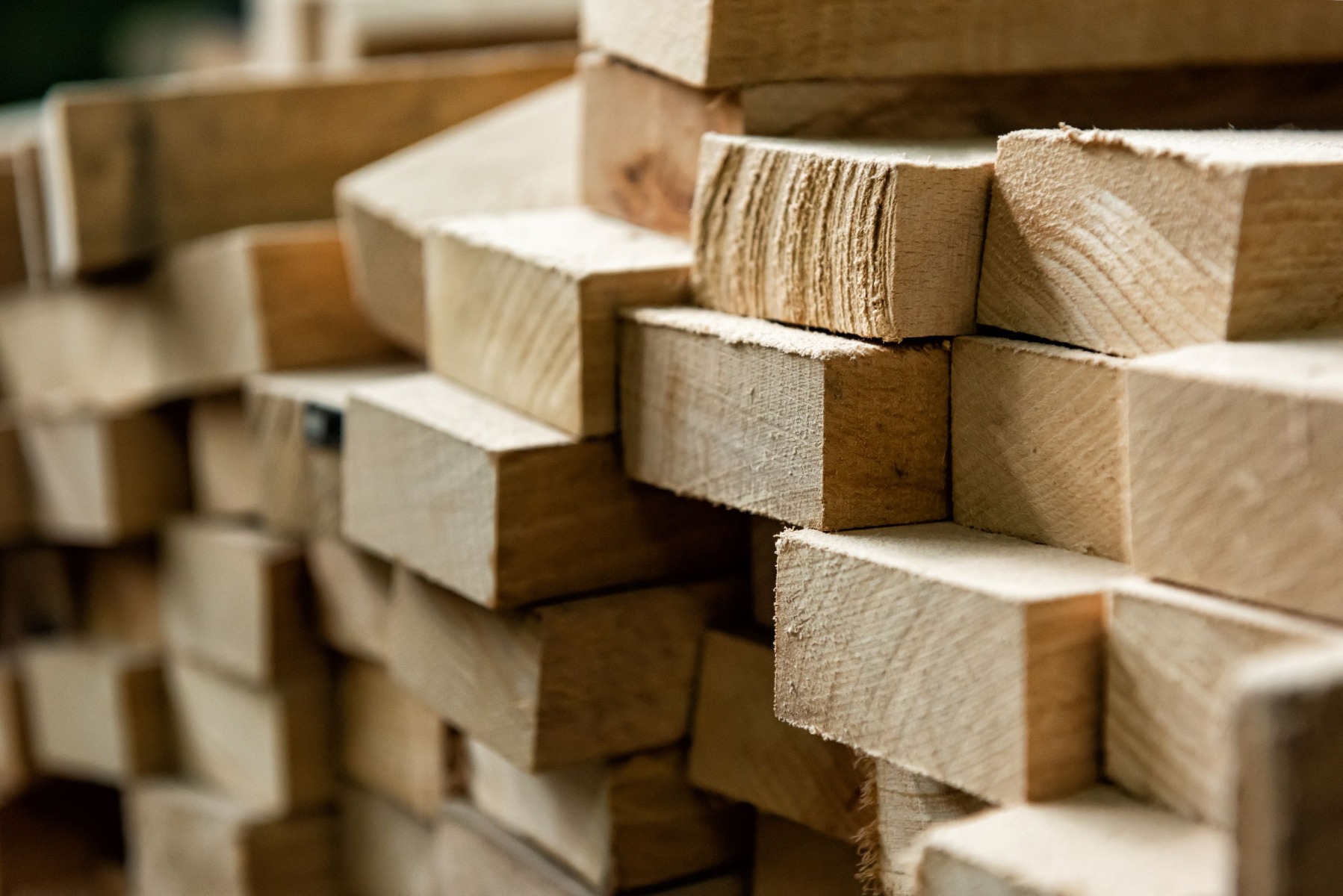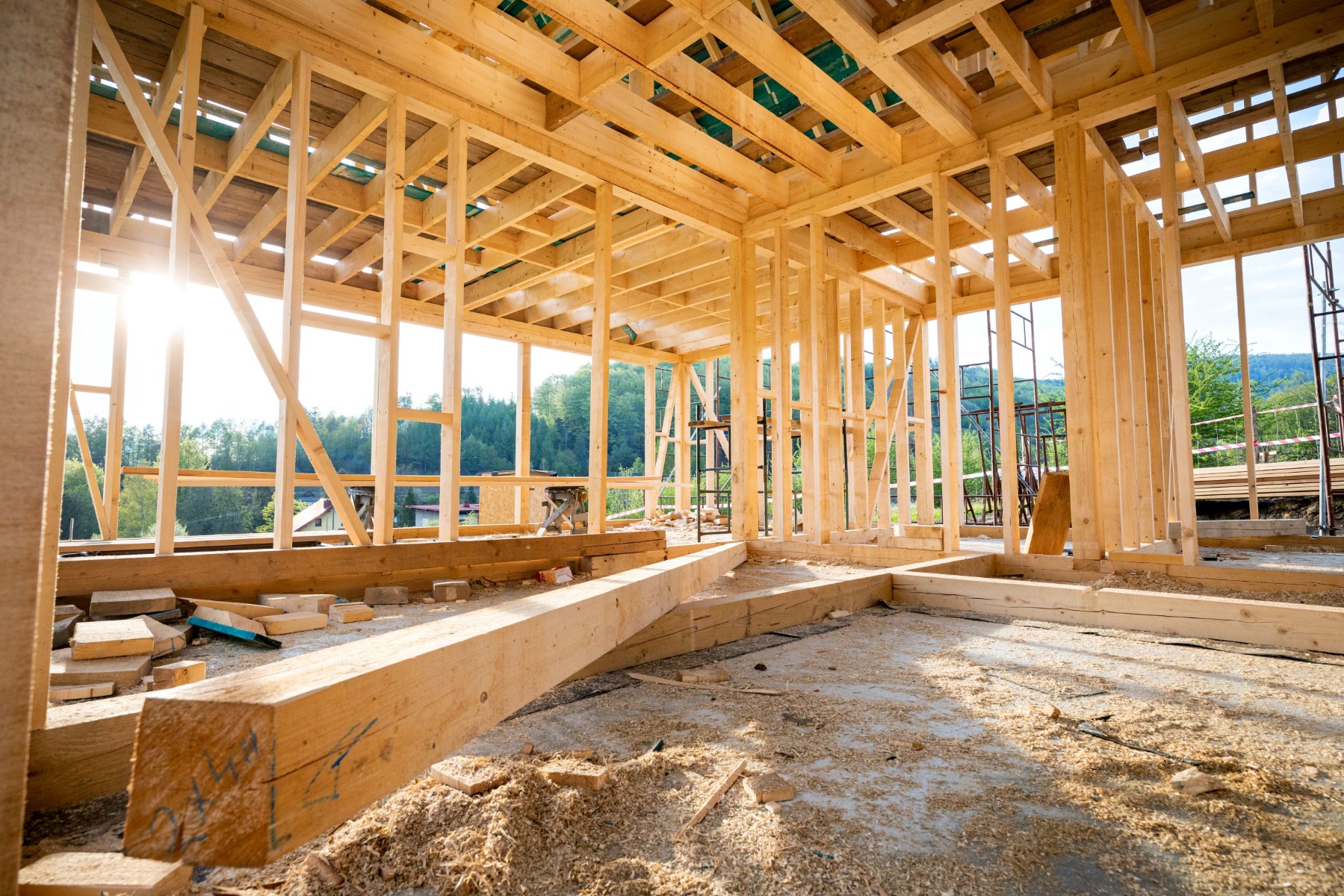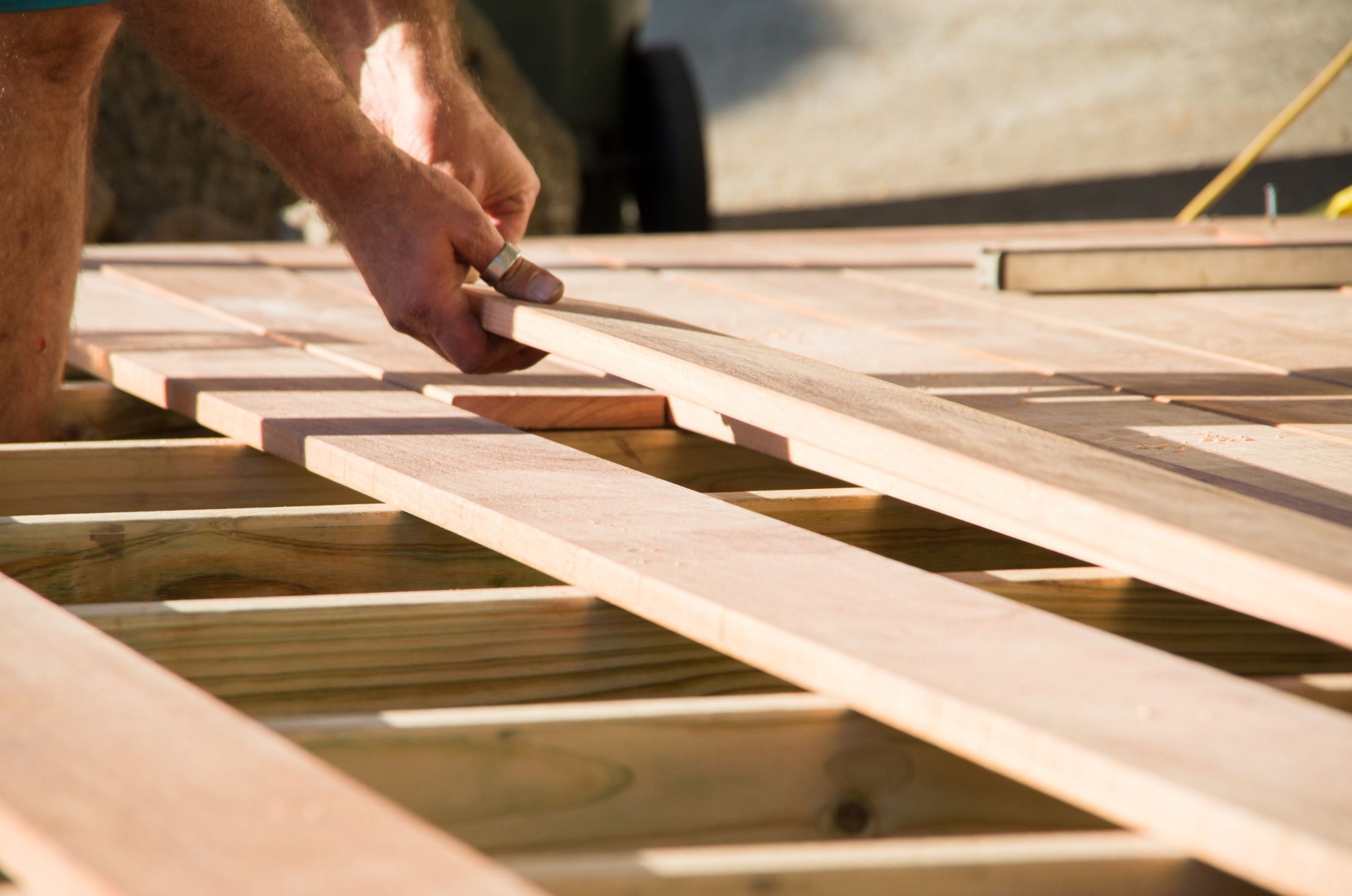
What is C24 Timber? Everything You Need to Know
If you need strong, top-quality, timber for your structural projects, C24 is the right choice for you. Our timber experts are here to answer all of your questions such as definition, uses, dimensions, and more.
What is C24 Timber?
C24 timber is the highest-strength grade of timber commonly used in the UK, carefully selected and graded to meet stringent quality standards and provide superior performance than lower grades like C16. The meaning of the “C” is “coniferous” as it’s made from softwood, typically spruce, fir, or pine trees, and the 24 represents its strength grading. It’s a kiln-dried timber to reduce its moisture content to below 20%, giving it strength and durability.
What is C24 Timber Used For?
C24 timber can be used for a wide range of different construction projects. Its high density makes it resistant to bending and deformation, so it’s ideal for carcassing, frameworks, studwork, joists, and beams, thanks to its load-bearing capacity. It’s also commonly used in flooring and roofing. As well as being of a higher-strength grade, C24 also offers more consistency and fewer physical imperfections, making it a great choice for exposed beams or visible structural elements.

Is C24 Timber Treated?
AllC24 timber undergoes a kiln-drying process which prevents warping and cracking, as well as making it moisture-resistant and protected from infestations. After this, C24 timber can be left untreated or treated with preservatives to protect it againstwater and insect ingress. This makes treated C24 timber a great option for external projects or carcassing as it reduces the chance of mould. While you can buy the timber untreated, most C24 in the UK is sold treated.
What Sizes Does C24 Timber Come In?
C24 timber comes in a wide range of sizes to suit any project. At Covers Builders Merchants, we stock the following dimensions of treated C24 timber, sold by the metre:
- 47 x 100mm
- 47 x 125mm
- 47 x 150mm
- 47 x 175mm
- 47 x 200mm
- 47 x 225mm
- 75 x 100mm
- 75 x 150mm
- 75 x 200mm
- 75 x 225mm
- 100 x 100mm
- 100 x 150mm
Our team can always provide additional sizes and lengths if you need specific dimensions.
How is C24 Timber Graded?
Timber must undergo certain gradings to be certified with a specific rating. C24 timber is first dry-graded to ensure it has a moisture content of 20% or below. It is then strength-graded to assess the pressure it is able to withstand. This is a necessary process to ensure consistency, durability, and safety in timber used for construction purposes.
There are two key methods of pressure grading wood: machine grading and visual grading. Machine grading uses technology to test the timer’s strength and visual grading is carried out by a trained professional who will look for any apparent defects in the wood. It’s important to remember with graded timber that if you cut or thin the beam, it will need to be regraded before it can be used for construction purposes.
A C24 grading refers to the minimum strength the wood beam can take per square millimetre. Any timber with a C24 certification will be stamped with its rating. Below are the stress grading passing amounts for C24 timber decided by the British Standards BS 5268-2:
|
Strength Class |
Measurement |
C24 |
|
Bending Parallel to Grain |
N/mm2 |
7.5 |
|
Tension parallel to Grain |
N/mm2 |
4.5 |
|
Compression parallel to Grain |
N/mm2 |
7.9 |
|
Compression Perpendicular to Grain |
N/mm2 |
1.9 |
|
Shear Parallel to Grain |
N/mm2 |
0.71 |
|
Mean Modulus of Elasticity |
N/mm2 |
10800 |
|
Minimum Modulus of Elasticity |
N/mm2 |
7200 |
|
Characteristic Density |
kg/m3 |
350 |
|
Average Density |
kg/m3 |
420 |
Can C24 Timber Be Used For External Projects?
As long as the wood has been treated, C24 timber can absolutely be used outside. As it is dry-graded to have a low moisture content, treated wood can withstand rain and dampness without rotting or getting mouldy. Treatment will also protect the wood from other external factors such as insects trying to burrow into the wood. You can also consider adding UV-resistant paints or heavy-duty sealants to your external builds to ensure longevity.
This means C24 timber is a great option for outdoor projects such as decking, sheds, pergolas and more. When choosing the right timber for your project, consider how much strength you need it to withstand and if C16 may be an appropriate, cheaper alternative.

What Is the Difference Between C16 vs C24 Timber?
C16 and C24 are the two most popular types of timber in the UK used for carcassing and framework. C24 is the superior wood, but that doesn’t mean its higher quality is necessary for your project. Here are the main differences between C16 and C24 timber:
- Strength: The main difference is the pressure-grading each has received. While C16 timber can withstand 16 Newtons per square millimetre, C24 can therefore withstand 24 Newtons per square millimetre. This means that C24 is the much stronger option of the two, but that does not mean your project requires such strength. C16 timber is still a strong option, so it is worth considering whether the added structural performance is necessary.
- Durability: C24 timber is overall of a higher quality, so less likely to warp or crack than C16. Once again though, C16 is still a great option, it just depends on your specific needs.
- Appearance: Through its visual inspection, the C24 timber will have stood out as having more uniformity and fewer knots or imperfections than C16. This makes C24 timber a great choice for any exposed elements in your project such as beams or flooring.
- Cost: As is to be expected, C24's higher quality means it also comes with a higher price tag. This is why it’s good to weigh up how important C24’s benefits are to your project. Do you need extra structural support? Will your wood be on show instead of hidden in the walls? Then C24 is likely the right choice for you.
If you want to find out more about C16 timber and if it’s appropriate for your next project, try our guide on What Is C16 Timber?
Find The Best Timber For Your Next DIY Project
Whether C24 or C16 timber is the perfect fit for your next DIY project, we have an extensive selection of softwood timber available for you to explore.
At Covers Builders Merchants, you can rely on our 175 years of industry experience and our commitment to top-quality products and customer service. When you visit your nearest Covers depot, you’ll experience the difference of shopping at a family-run business.
